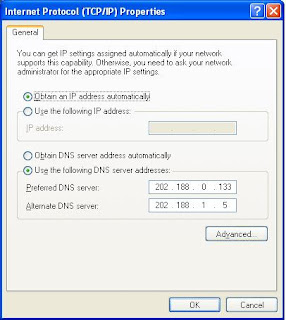
Hi, i have a little busy on work today. I can just forwarded article to my blog readers. But the more important is what this article tells you about. Please take a look, as long as you know your risk when you send any pictures through the internet, especially facebook fans.. :)
No such thing as "deleted" on the Internet
It's always fun to write about research that you can actually try out for yourself.
Try this: Take a photo and upload it to Facebook, then after a day or so, note what the URL to the picture is (the actual photo, not the page on which the photo resides), and then delete it. Come back a month later and see if the link works. Chances are: It will.
Facebook isn't alone here. Researchers at Cambridge University (so you know this is legit, people!) have found that nearly half of the social networking sites don't immediately delete pictures when a user requests they be removed. In general, photo-centric websites like Flickr were found to be better at quickly removing deleted photos upon request.
Why do "deleted" photos stick around so long? The problem relates to the way data is stored on large websites: While your personal computer only keeps one copy of a file, large-scale services like Facebook rely on what are called content delivery networks to manage data and distribution. It's a complex system wherein data is copied to multiple intermediate devices, usually to speed up access to files when millions of people are trying to access the service simultaneously. (Yahoo! Tech is served by dozens of servers, for example.) But because changes aren't reflected across the CDN immediately, ghost copies of files tend to linger for days or weeks.
In the case of Facebook, the company says data may hang around until the URL in question is reused, which is usually "after a short period of time." Though obviously that time can vary considerably.
Of course, once a photo escapes from the walled garden of a social network like Facebook, the chances of deleting it permanently fall even further. Google's caching system is remarkably efficient at archiving copies of web content, long after it's removed from the web. Anyone who's ever used Google Image Search can likely tell you a story about clicking on a thumbnail image, only to find that the image has been deleted from the website in question -- yet the thumbnail remains on Google for months. And then there are services like the Wayback Machine, which copy entire websites for posterity, archiving data and pictures forever.
The lesson: Those drunken party photos you don't want people to see? Simply don't upload them to the web, ever, because trying to delete them after you sober up is a tough proposition.
Source : http://tech.yahoo.com/blogs/null/142366
Click Here To Read More...




